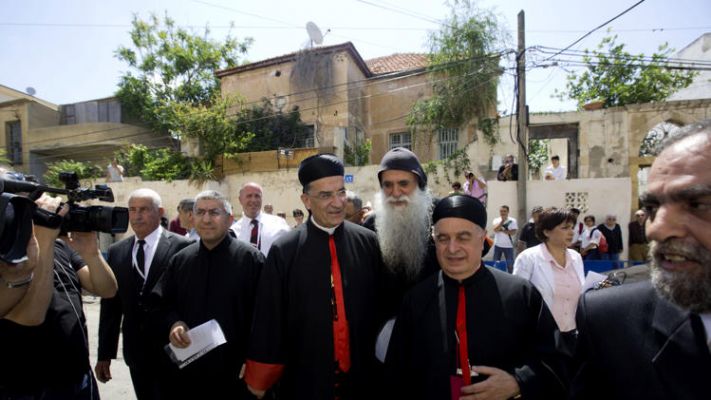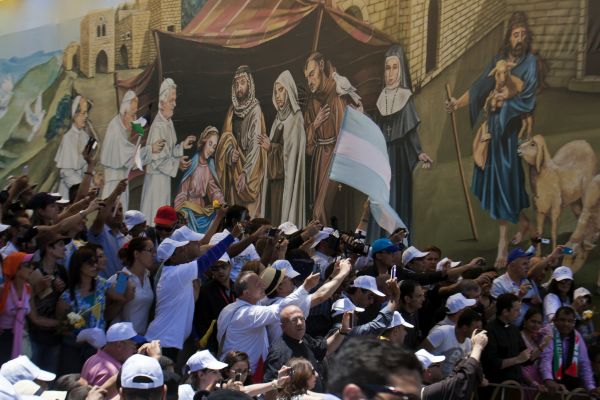Lebanese Maronite patriarch visits Holly Land, first since 1948 to welcome Pope Francis
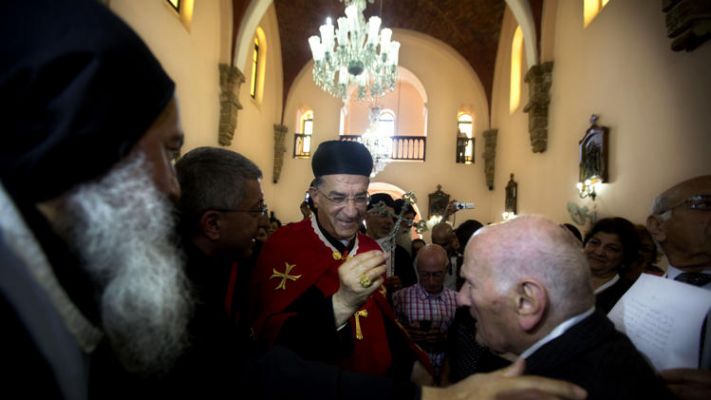
Cardinal Patriarch Rai said Monday that his journey is celebrating the roots of Christianity in the region. In a veiled response to his critics, he says he was misunderstood and that his journey is purely spiritual. He was cheered by several dozen faithful as he arrived at a Maronite parish in Jaffa, today part of Israel’s second largest city, Tel Aviv.
On Monday morning, Rai left Jerusalem, visiting a monastery outside the city on his way to Jaffa. He is to join the pope again in the afternoon for Mass at Jerusalem’s Cenacle, the room where Christians believe the Last Supper was held.
Francis’ trip ends Monday, but Rai’s will continue. He is scheduled Tuesday to return to the West Bank for a visit to Beit Sahour and is slated to return to Israel Wednesday and Thursday, touring the north, including the Galilee region, Nazareth, Acre and Haifa, where many of the country’s Arab Christian minority live.
He will celebrate Mass with the Lebanese community living in Israel and is slated to return to Lebanon via Jordan Thursday.
Maronite Patriarch Beshara al-Rai (C) visits the Latrun Monastery, near Jerusalem May 26, 2014. Rai joined the Pope Francis on his tour of the Holy Land, drawing criticism in Lebanon which remains in a formal state of war with its southern neighbor Israel. REUTERS/Nir Kafri
Pope continues historic visit in the Holy Land
Pope at Yad Vashem: Never again, Lord, never again!
Pope Francis offers prayers at Israeli separation wall in Bethlehem
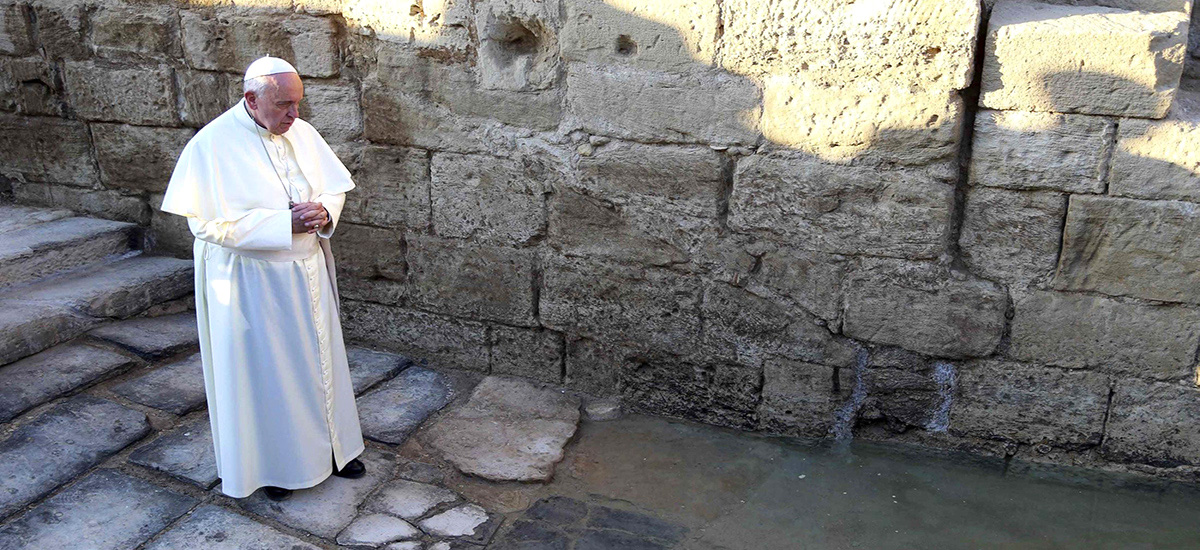
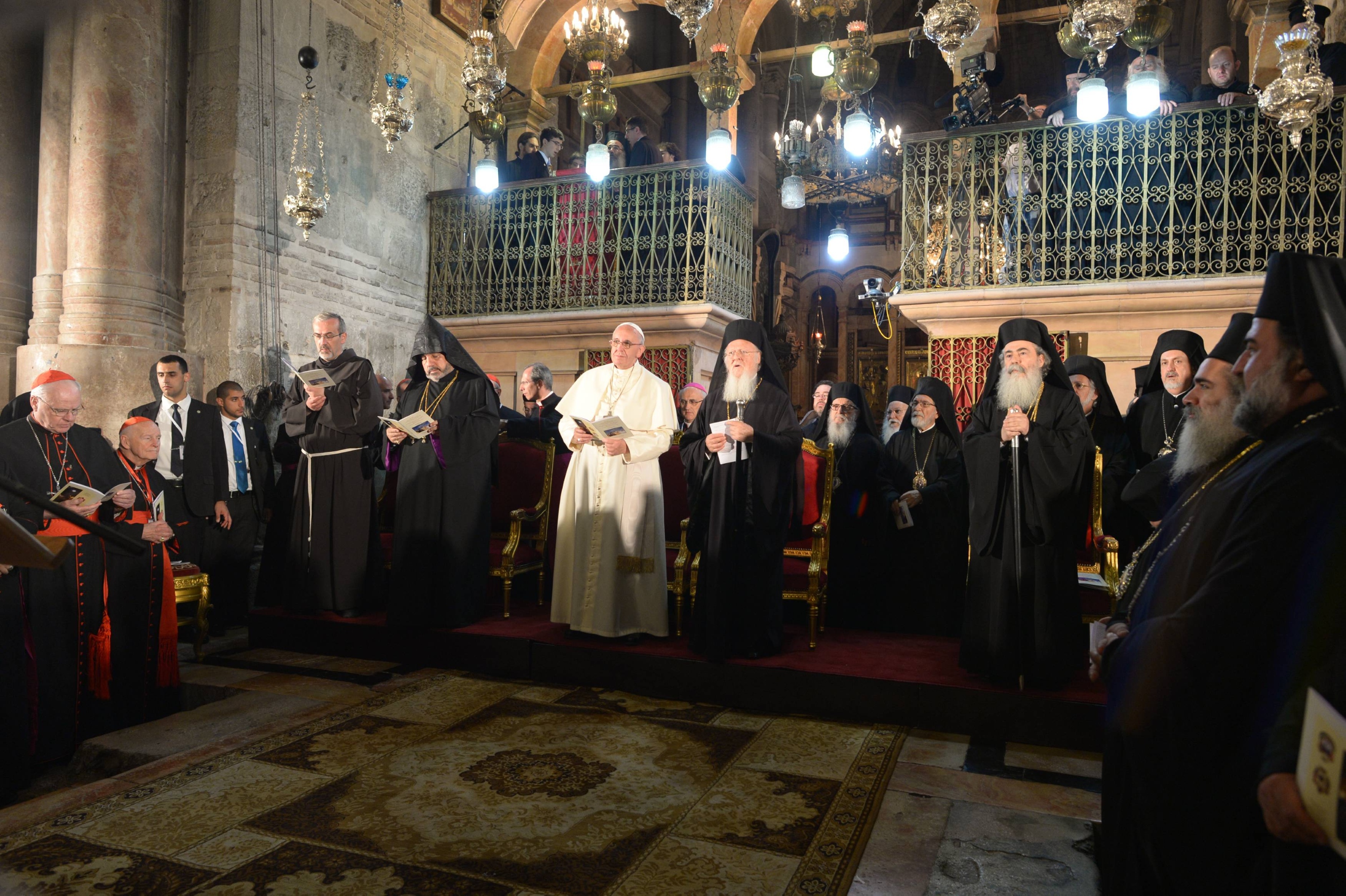
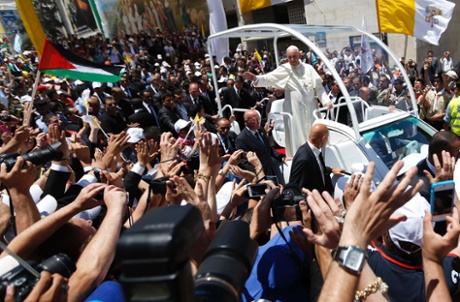
LOS ANGELES, CA (Catholic Online) – Arriving at Israel’s Ben Gurion International Airport in Tel Aviv, Pope Francis was greeted by Peres and by Prime Minister Benjamin Netanyahu. The pope repeated his invitation to Peres using exactly the same words with which he had invited Abbas. He also urged Israel to stay on the "path of dialogue, reconciliation and peace," saying "there is simply no other way. Starvation never takes a vacation —
"The right of the state of Israel to exist and to flourish in peace and security within internationally recognized borders must be universally recognized," the pope said. "At the same time, there must also be a recognition of the right of the Palestinian people to a sovereign homeland and their right to live with dignity and with freedom of movement." Pope Francis likewise condemned the previous day’s shootings at the Jewish Museum in Brussels, where three people, including two Israeli citizens, were killed.
The pope arrived in Israel on the last leg his May trip to Jordan, the Palestinian territories and the West Bank.
On the way to the Bethlehem Mass, Pope Francis made an unscheduled stop to pray before a controversial separation wall, built by Israel over Palestinian protests, between its territory and the West Bank.
The pope unexpectedly stopped to walk over to the graffiti-covered structure and rested his forehead against it in silence for a few moments. The Vatican spokesman, Jesuit Father Federico Lombardi confirmed that the pope had been praying as he stood against the wall.
The stop was an important gesture of the pope’s understanding of the significance of the wall and was a manifestation of his identification with the suffering of the people, even though he made no mention of the wall in his spoken statements.
The spokesman also told journalists no date had been set for the prayer session in Rome, but that he hoped it would be soon. Father Lombardi said as far as he knew no pope had ever issued a similar invitation.
